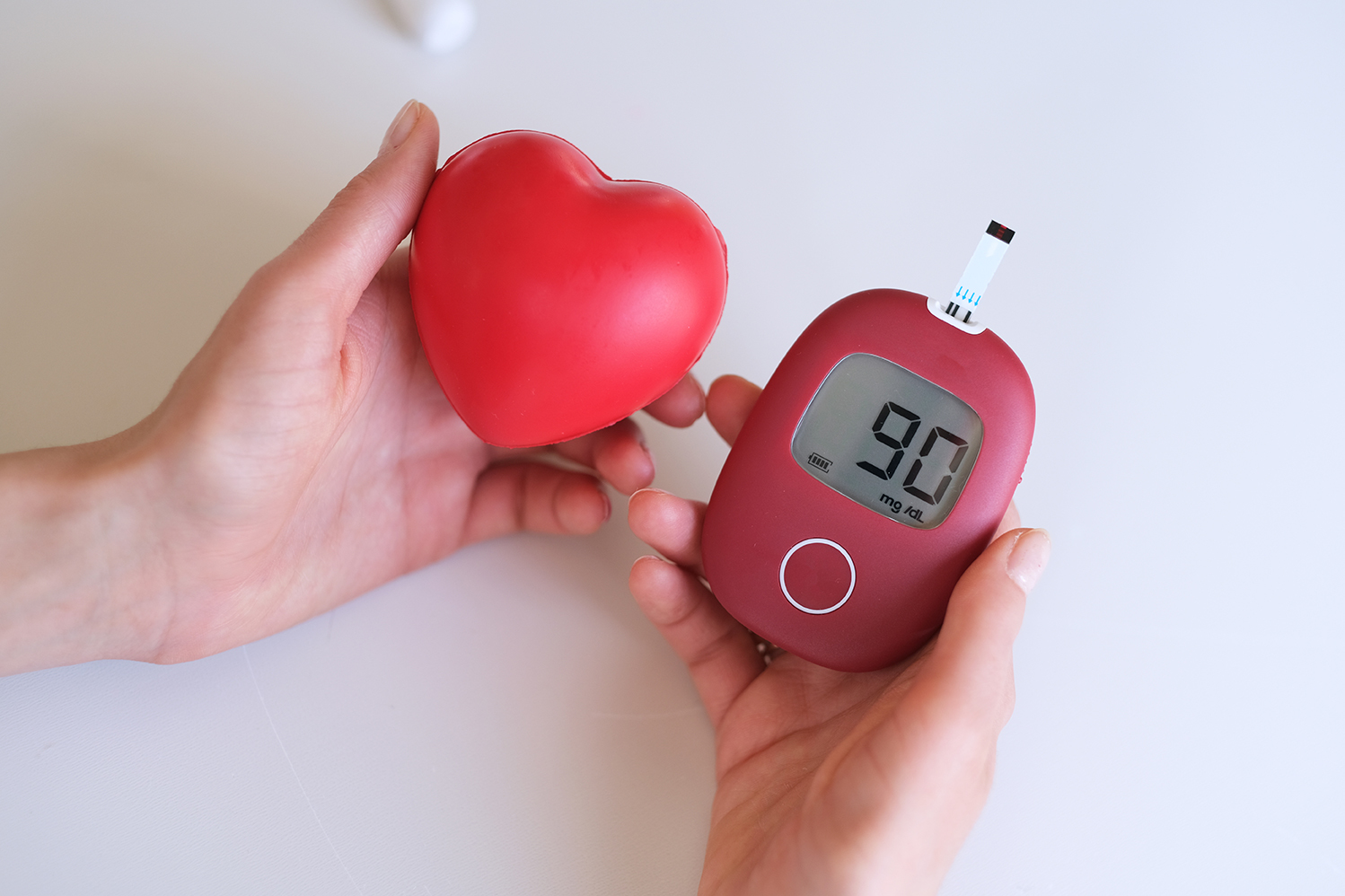News
The 7 Signs and Symptoms of a Heart Attack You Shouldn’t Ignore
The 7 Signs and Symptoms of a Heart Attack You Shouldn’t Ignore

What is a heart attack? When you develop plaque (from cholesterol) on your heart arteries, blood is blocked from flowing and reaching all areas of your heart. As a result, your heart is deprived of oxygen and nutrients, leading to cell death. That’s a heart attack.
Most women who have a heart attack feel some sort of chest pain or discomfort. But women’s heart attack symptoms are not uniform— they may experience more varied symptoms than men.
Some heart attacks are sudden and intense, but most start slowly. The early signs of a heart attack can be subtle or silent. Knowing what to look for and acting quickly can help prevent further damage to your heart.
Signs and Symptoms of a Heart Attack in Women
- Chest pain or discomfort (lasts more than a few minutes or goes away and comes back)
- Discomfort anywhere in the upper body – jaw, neck, shoulders, back, either arm, upper stomach area
- Shortness of breath
- Nausea or vomiting
- Sweating
- Dizziness
- A sense that something is wrong
It’s important to be aware of and attentive to any of these symptoms. Heart attacks don’t always feel like they look in the movies. Not everyone has chest pain or discomfort. Heart attack discomfort may not even feel that painful.
Even recognizing the symptoms, most women delay calling 911 and lose critical time, according to an international study.
If you experience any of these symptoms, call 911 immediately. If you’re not sure, go to the hospital and let a doctor decide. Every minute counts!
Want to learn more? Watch this video: https://youtu.be/mOitt-QJxt0.
10 Things You Need To Know About Heart Disease if You Have Diabetes
10 Things You Need To Know About Heart Disease if You Have Diabetes

If you have diabetes, reducing your risk of heart disease is key to improving your quality of life. Maintaining a healthy lifestyle is the most important thing you can do to minimize complications and prevent heart disease.
Nisha Jhalani, MD, Director of the CRF Women’s Heart Health Initiative, put together the following list of things you need to know about living with diabetes.
1. Diabetes is a major risk factor for atherosclerosis.
It can affect all the arteries in the body leading to problems in many areas of the body, including your eyes (retinopathy), nerves (neuropathy), heart (coronary artery disease), and legs (peripheral artery disease).
2. The populations at risk of developing diabetes.
You are most at risk if you have a parent or sibling with diabetes or if you are overweight or obese. The risk also increases with age and inactivity. Some minority groups are also at greater risk (African American, Hispanic, Native American, Asian Americans.)
3. Get moving.
Try to get 150 minutes of moderate intensity exercise or 75 minutes of vigorous intensity exercise each week.
4. Eat well.
The Mediterranean, DASH, and vegan/vegetarian diets all help you lose weight and control your blood sugar. Instead of cutting out carbs completely, eat fiber-rich whole grains and avoid refined carbohydrates such as white bread or pastries. Replace red meat with lean meats, especially fish, and use portion control (meat portion should be no larger than a deck of cards.)
5. Get treatment for diabetes/prediabetes.
Healthy lifestyle habits will help you improve your blood sugar level and manage your diabetes. But sometimes it’s not enough. Make sure you talk to your doctor about medications that can help. Metformin is the first line of defense. Used to control high blood sugar, metformin can also help control weight and improve insulin resistance. Second-line treatments like SGLT-2 inhibitors and GLP-1 inhibitors have a proven cardiovascular benefit.
6. Use aspirin only if your doctor tells you to.
Aspirin is no longer recommended for primary prevention of heart disease. It is currently recommended in people ages 40-70 years old with the highest risk of developing heart disease who do not have an increased risk of bleeding.
7. Blood pressure control.
Normal blood pressure is less than 120/80. Anything over 130/80 is considered hypertension. If you have diabetes, ACE inhibitors or angiotensin receptor blockers (ARBs) are the preferred treatments.
8. Treatment of abnormal cholesterol levels.
If you have diabetes but do not have heart disease and are between the ages of 40 and 75, you should be on a moderate-intensity statin. If you are at a higher risk with other conditions, you should be on a high-intensity statin.
9. Goal: to prevent or delay atherosclerosis.
Adopting these healthy lifestyle habits can help you prevent or delay future symptoms or cardiac events.
10. Team-based care is key to treating your diabetes.
There are many people who should be involved in your care. Take control of your health by educating yourself about the healthcare professionals you should see on a regular basis. Make sure you have a primary care doctor. Other specialists you may need include an ophthalmologist, podiatrist, dentist, nutritionist/diabetes educator, endocrinologist, cardiologist, vascular specialist or nephrologist.
Want to learn more? Watch this video: https://youtu.be/KKCKgHPlhqE
10 Ways to Defy Heart Disease
10 Ways to Defy Heart Disease

Heart disease can happen at any age. Despite prevention efforts and advances in treatments, heart disease is still the number-one cause of death for women in the United States.
It’s never too early or too late to incorporate heart-healthy habits into your life. Nisha Jhalani, MD, Director of the CRF Women’s Heart Health Initiative, put together the following list of lifestyle changes and risk factor management. These tips can help you and your loved ones defy heart disease.
1. It’s never too early to discuss heart health.
Talk to your doctor about your risk and family history. Begin regular screening for high blood pressure, high cholesterol, and diabetes --- three major cardiac risk factors that don’t necessarily have symptoms. Know your numbers for blood pressure, cholesterol, body mass index, and waist circumference.
2. Pay attention to pregnancy issues.
Hypertensive conditions during pregnancy can predispose you to heart disease later in life. Did you know gestational hypertension or pre-eclampsia affect about 10 percent of all pregnancies and are associated with an increased risk of heart disease? On top of that, gestational diabetes increases your risk seven-fold for type 2 diabetes and is also linked to a higher risk for stroke.
3. Eat right.
Aim for a diet low in saturated and trans fats. Instead, focus on foods high in polyunsaturated or monounsaturated fats like fish, nuts, avocados, and olive oil. Eat plant-based sources of protein.
4. Drink right.
Drink at least eight glasses of water daily. Avoid sugary beverages or energy drinks. Limit yourself to one or two cups of coffee or tea a day. Drink alcohol moderately. Alcohol abuse can increase your risk for atrial fibrillation, heart failure, high blood pressure, high cholesterol, and stroke.
5. Don’t smoke.
Smoking hardens your arteries and increases inflammation, which can lead to unstable plaque—a cause of heart blockage. It’s never too late to stop smoking or take advantage of the benefits of being a non-smoker.
- 20 minutes after quitting, your heart rate and blood pressure will go down.
- 12 hours after quitting, your carbon monoxide levels return to normal.
- Within three months of quitting, your lung function improves.
- One year after quitting, your risk for heart disease is cut in half.
6. Get moving.
Exercise is the best medicine. Any exercise, no matter how little, has positive health benefits. To prevent heart disease, do 150 minutes of moderate intensity or 75 minutes of vigorous exercise per week.
7. Sleep well.
Aim for six to eight hours of sleep per night. More or less than this amount can increase your risk of heart disease and stroke. Lack of sleep can also cause loss of heart rate variability, insulin resistance, and higher inflammatory markers.
8. De-stress.
Chronic stress is associated with an increased risk of cardiovascular disease. A 2017 study showed how changes in the brain under chronic stress, such as anxiety or depression, can lead to increased bone marrow activation, increased inflammation of the arterial walls, atherosclerosis, and cardiac events.
9. Make time for yourself every day.
Stress reduction therapies such as meditation and yoga have been shown to:
- Decrease activity in your amygdala
- Increase relaxation and your resilience to stress
- Reduce your blood pressure and cholesterol
- Decrease your waist size
- Reduce your heart and respiratory rates
10. Share what you’ve learned.
Many risk factors for heart disease can’t be changed, such as your age, race, sex, and family history. But a healthy lifestyle can cut the risk of heart disease in half even for those who are at the highest genetic risk.
Want to learn more? Watch this video: https://youtu.be/F9oJqHUjL3c
The Connection Between Diabetes and Heart Disease
The Connection Between Diabetes and Heart Disease

Diabetes can have a serious impact on your health, especially on your heart.
Adults with diabetes are two to four times more likely to die from heart disease than adults without diabetes, according to the American Heart Association.
“The link between diabetes and heart health is real,” said Nisha Jhalani, MD, Director of the CRF Women’s Heart Health Initiative and Director of Inpatient Clinical Services at the Center for Interventional Vascular Therapy at NewYork-Presbyterian/Columbia University Irving Medical Center. “Heart disease affects people with diabetes at a younger age. And the longer someone has diabetes, the more likely they are to develop heart disease.”
Atherosclerosis, the hardening of the arteries, develops differently in people with diabetes. Diabetes can make your blood more prone to clotting or plaque rupture, which can lead to a heart attack or stroke. Diabetes also influences your cholesterol. The negative effects of LDL (bad) cholesterol tend to be worse, while the protective effects of HDL (good) cholesterol are reduced.
“As the number of people diagnosed with diabetes or prediabetes continues to rise, it’s critical for people with diabetes to make lifestyle changes that can reduce their risk of heart disease and improve the quality of their lives,” Dr. Jhalani added.
The keys to preventing heart disease in diabetes are healthy lifestyle habits and aggressive control of risk factors and symptoms. Here are some of the things you can focus on.
Don’t smoke.
Smoking is one of the worst things you can do to your heart, whether or not you have diabetes.
Maintain a healthy weight.
Eating a heart-healthy diet can help you lose weight and reduce your cholesterol.
Get moving.
Don’t go more than two days without getting some type of physical activity. You should aim to get 30 minutes of exercise most days of the week. For weekend warriors, try to get at least 75 minutes of vigorous activity.
Maintain healthy blood pressure and cholesterol levels
Vigorous blood pressure control has a greater impact in preventing heart events in people with diabetes than in people without diabetes.
Talk to your doctor about diabetes medications.
- Metformin is the first line of defense. Used to control high blood sugar, metformin can also help control weight and reduce insulin resistance.
- Second-line treatments like SGLT-2 inhibitors and GLP-1 inhibitors have a proven cardiovascular benefit.
Want to learn more? Watch this video: https://youtu.be/IExp06I2f6s.